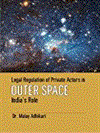|
|
|
Sort Order |
|
|
|
Items / Page
|
|
|
|
|
|
|
| Srl | Item |
| 1 |
ID:
139530


|
|
|
|
|
| Summary/Abstract |
Credit rating agencies such as Moody's and Standard & Poor's have considerable influence in the global economy. Nonetheless, we know little about the factors that affect these ratings, particularly factors under government control. We argue that participation in preferential trade arrangements (PTAs) can significantly improve national credit ratings by “locking in” liberal trade policies at home and abroad. This both ensures a stable stream of export revenues and represents a commitment to market-friendly policies of which the rating agencies approve. We test and find support for this hypothesis with an analysis of intra-PTA trade and credit ratings in 100 countries from 1971 to 2008. As expected, intra-PTA trade consistently improves national credit ratings. However, this effect is only partially mediated by trade volatility and other economic variables, suggesting that the rating agencies' support for PTAs is partly ideological in nature. Interestingly, overall trade openness does not affect credit ratings once we control for participation in PTAs. It is thus the formal commitment to open trade, rather than the volume of trade per se, that improves credit ratings. Our results point to the growing importance of private actors in international governance, as well as to the interrelated nature of trade and financial regimes.
|
|
|
|
|
|
|
|
|
|
|
|
|
|
|
|
| 2 |
ID:
146192


|
|
|
|
|
| Summary/Abstract |
Over the last three decades, thousands of prosecutions for human rights abuses have progressed through domestic courts, a puzzling fact considering that state leaders have little incentive to punish their own agents. Previous studies have advanced rational-choice or sociological-institutionalist accounts of this phenomenon, emphasizing the role of political coalitions or regional cultures. Few, though, have recognized the local, private struggles that lie at the root of the trend toward domestic human rights enforcement. In this article, we develop a historical-institutionalist theory of normative change centered on the notion of “prosecutorial momentum.” We contend that the rise in domestic trials against rights-abusing state agents in Europe and Latin America results in large part from the cumulative efforts of victims and human rights lawyers utilizing their rights to private criminal prosecution. Using a new data set and mixed methods, we offer a systematic analysis of how rights to private criminal prosecution, when activated in response to a legacy of repression, helps set in motion sustained efforts to pursue domestic enforcement and compliance with international law.
|
|
|
|
|
|
|
|
|
|
|
|
|
|
|
|
| 3 |
ID:
149795


|
|
|
|
|
| Summary/Abstract |
Today, India enjoys the status of a spacefaring state. It is the national space agency—the Indian Space Research Organization—which created the culture of self-reliant space technology through its space program achievements. Even though there are emergent private actors in addition to the national space agency, it is very difficult to realize their potential in space in India. Because the national space program is societal-centric and application-centric, space commercialization is constrained. Nevertheless, there is interest in overcoming these constraints and in enabling a role for private space actors in India. In such a scenario, legal regulations are required. Within this context, is the existing legal regulatory framework sufficient, and has India already considered a vital role to regulate private actors in space? Also, are there global influences? This article analyzes these queries.
|
|
|
|
|
|
|
|
|
|
|
|
|
|
|
|
| 4 |
ID:
152175


|
|
|
|
|
| Publication |
New Delhi, KW Publishers Pvt Ltd., 2017.
|
| Description |
xxv, 293p.hbk
|
| Standard Number |
9789386288202
|
|
|
|
|
|
|
|
|
|
|
|
Copies: C:1/I:0,R:0,Q:0
Circulation
| Accession# | Call# | Current Location | Status | Policy | Location |
| 058993 | 520.54/ADH 058993 | Main | On Shelf | General | |
|
|
|
|
| 5 |
ID:
115357


|
|
|
|
|
| Publication |
2012.
|
| Summary/Abstract |
In several areas of the post-9/11 efforts to fight terrorism, private rather than public entities have shouldered the bulk of the burden. This has been especially the case in the fight against terrorist financing where private financial institution are legally obliged to monitor the billions of daily financial transactions and report the suspicious ones to public authorities for further investigation. Since private financial institutions are geared toward making profits and where the money has come from has traditionally not been of great interest to them, it is important to investigate how they have coped with these demanding requirements.
|
|
|
|
|
|
|
|
|
|
|
|
|
|
|
|
| 6 |
ID:
139203


|
|
|
|
|
| Summary/Abstract |
This article analyzes the legislative processes and the creation of security governance structures in a recent move by Scandinavian countries to authorize the use of armed guards on commercial vessels. Findings reveal that while there are many similarities, the cases (Denmark, Norway, and Sweden) differ in terms of government control, oversight, and governance of private security providers, as well as in the management of firearms and the use of force. The article concludes that all three countries have adopted an approach that creates a “semblance” of state control and regulation but which also entails substantial delegation of authority to private actors.
|
|
|
|
|
|
|
|
|
|
|
|
|
|
|
|
|
|
|
|
|